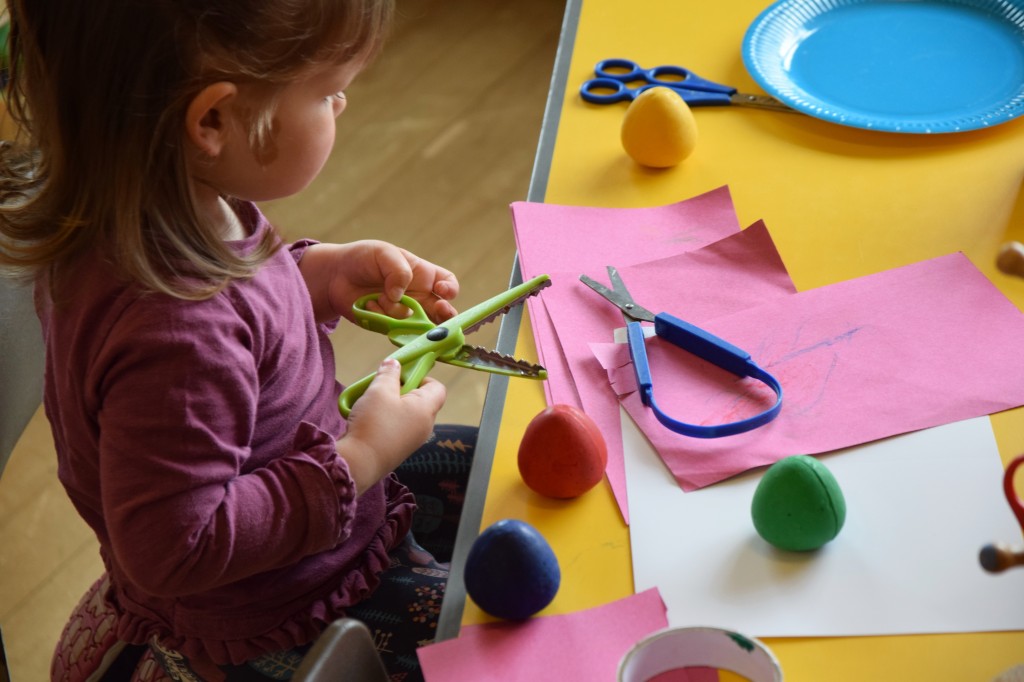
We are committed to providing childcare which is secure, nurturing and inspiring through play-based learning. Our aim is to support each child on their path to school readiness and lifelong learning. Our focus is on the Early Years Foundation Stage, more information about which can be found below.
The Early Years
Every child deserves the best possible start in life and the support that enables them to fulfill their potential. Children develop quickly in the early years and a child’s experiences between birth and age five have a major impact on their future life chances.
A secure, safe and happy childhood is important in its own right. Good parenting and high-quality early learning together provide the foundation children need to make the most of their abilities and talents as they grow up.
Children are born ready, able and eager to learn. They actively reach out to interact with other people, and the world around them. Development is not an automatic process; it depends on each unique child having opportunities to interact in positive relationships and enabling environments. It is important that both Childcare professional and Parents work together, sharing information about a child, what they have done at home and in the Childcare setting. Practitioners will continually be assessing and building on your child’s skills through play-based activities.
The Early Years Foundation Stage (EYFS)
The Early Years Foundation Stage (EYFS) is how the Government and early years professionals describe the time in your child’s life between birth and age 5. This is a very important stage as it helps your child get ready for school as well as preparing them for their future learning and successes.
From when your child is born up until the age of 5, their early years experience should be happy, active, exciting, fun and secure; and support their development, care and learning needs. Nurseries, pre-schools, reception classes and childminders registered to deliver the EYFS must follow a legal document called the Early Years Foundation Stage Framework.
Progress check at Two
At some point after your child turns 2, the professionals working with your child must give you a written summary of how your child is progressing against the 3 prime areas of learning: communication and language; physical development; and personal, social and emotional development. This is called the Progress Check at age 2. This check will highlight areas where your child is progressing well and anywhere they might need some extra help or support – and how mums and dads and other family members or carers can work with the key person to help.

You might find it useful to share the information from the check with other professionals such as health visitors (who can use it as part of the health and development review).
How my child will be learning
The EYFS Framework explains how and what your child will be learning to support their healthy development. Your child will be learning skills, acquiring new knowledge and demonstrating their understanding through 7 areas of learning and development. Children should mostly develop the 3 prime areas first. These are:
- Communication and language
- Physical development
- Personal, social and emotional development
These prime areas are those most essential for your child’s healthy development and future learning. As children grow, the prime areas will help them to develop skills in 4 specific areas. These are:
- Literacy Mathematics
- Understanding the world
- Expressive Arts and Design
These 7 areas are used to plan your child’s learning and activities. The professionals teaching and supporting your child will make sure that the activities are suited to your child’s unique needs. This is a little bit like a curriculum in primary and secondary schools, but it’s suitable for very young children, and it’s designed to be really flexible so that staff can follow your child’s unique needs and interests.
Your child’s learning journey
At St. Cuthbert’s Pre-school Playgroup we aim to support children’s learning and development through observations as they play and interact during activities. We learn from parents what your child’s interests are at home and adapt our planning to maximise their involvement.
We use the Tapestry Online Learning Journey to document your child’s development. Observations, photos, videos and pieces of your child’s work will be collected electronically using Tapestry and record for their individual learning journey.
Your child’s Key Person will analyse their observations and decide what they tell us about your child. Progress will be mapped onto the child’s ‘Development Statement’ to identify possible areas in which to challenge and extend the child’s current learning and development.
Staff attend monthly planning meetings and will incorporate your child’s needs and interests into the next month’s planning.
Your child’s learning journey is always available through Tapestry and we encourage parents/carers to input observations and share news of special events.
A termly meeting is held with the Key Person to review Learning Journeys.



